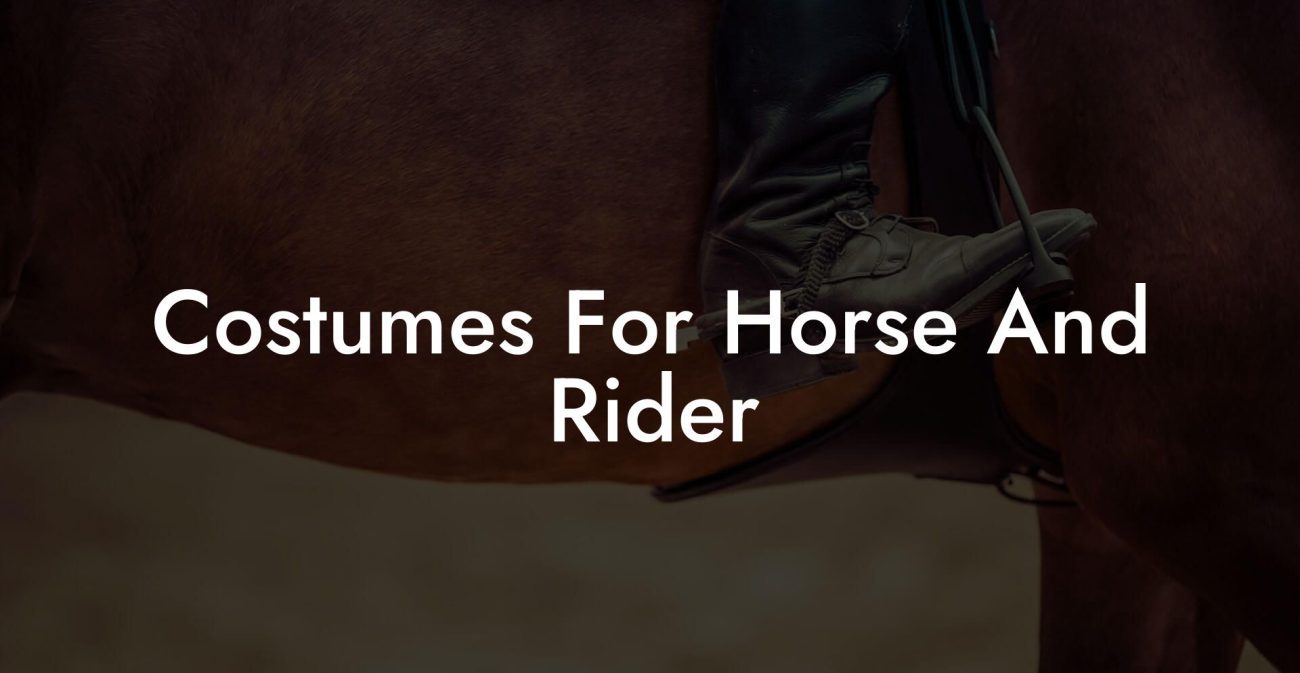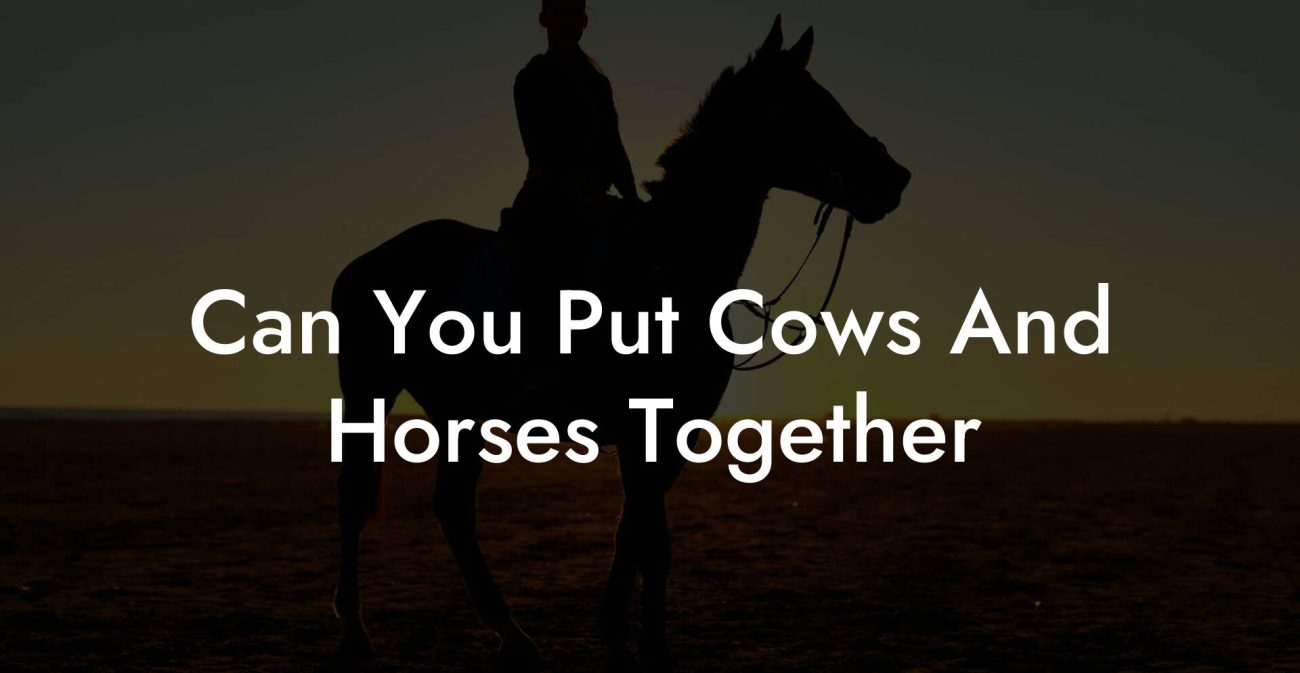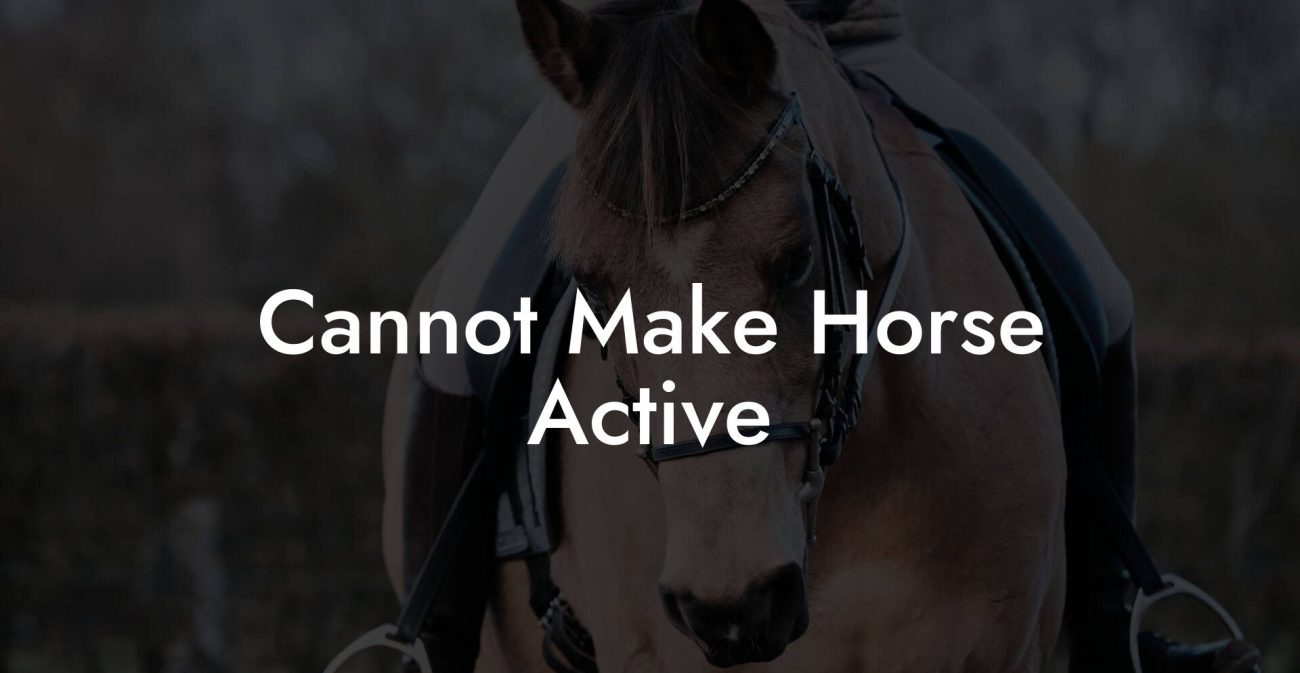There’s something mesmerizing about watching a powerful horse gracefully ascend a rolling hill. It’s not just about the scenery or the challenge, the magic lies in the transformation that takes place with every determined step upward. Hill work isn’t merely a trendy training method; it’s an essential component of building strength, stamina, balance, and overall soundness in your equine partner. Whether you’re a Gen-Z equestrian taking your first leaps into horse care or a millennial rider with a passion for innovative training techniques, hill work offers your horse a workout that’s as natural as a breezy pasture and as dynamic as your favorite viral dance challenge.
Quick Links to Useful Sections
- What Is Hill Work and Why Is It a Game-Changer for Your Horse?
- The Science Behind Hill Work: Boosting Equine Strength and Endurance
- Benefits of Hill Work: Fueling Your Horse’s Performance and Well-Being
- 1. Superior Strength Building
- 2. Enhanced Cardiovascular and Respiratory Endurance
- 3. Improved Balance and Coordination
- 4. Injury Prevention and Rehabilitation
- 5. Mental Stimulation and Confidence Building
- 6. Versatility in Training Regimens
- How Hill Work Fits Into a Balanced Equine Training Program
- Gradual Introduction
- Mixing It Up: Variety Is the Spice of Equine Life
- Monitoring and Adjusting Intensity
- Creating an Engaging Hill Work Environment
- Exploratory Trail Rides
- Interval Hill Training
- Incorporating Obstacles and Challenges
- Common Pitfalls in Hill Work and How to Avoid Them
- Overexertion and Fatigue
- Poor Surface Conditions
- Lack of Warm-Up and Cool-Down
- Ignoring Individual Limits
- Integrating Hill Work with Other Forms of Equine Conditioning
- Flat Work and Arena Drills
- Balance and Coordination Exercises
- Interval and Endurance Training
- Inspired Case Studies: Real-Life Success Stories in Hill Work
- The Comeback Kid: Overcoming Injury Through Gradual Incline Training
- Building Champions: Enhancing Performance for Competitive Horses
- Mental Toughness and Confidence From the Climb
- Practical Tips for a Successful Hill Work Session
- Resources and Community Support: Your Next Steps in Equine Excellence
- FAQs About Hill Work for Horses: Your Questions Answered
- Your Journey to Peak Equine Performance Starts with that First Climb
What Is Hill Work and Why Is It a Game-Changer for Your Horse?
Hill work refers to any type of training session where your horse navigates a slope or incline, be it an uphill canter, a brisk trot, or even a steady walk. This dynamic environment forces your horse to engage muscles that might not get as much attention on flat ground, turning every stride into an opportunity for strength and conditioning. Imagine swapping your standard gym treadmill for a scenic, natural incline that pushes you to work harder with every step, that’s the equine equivalent of hill work!
In today’s fast-paced world where fitness trends come and go, hill work stands out as a tried-and-true method for enhancing equine athleticism. It builds muscle tone, develops balance, and improves cardiovascular capacity, all while tapping into your horse’s natural instincts and love for exploration. Whether your horse is preparing for competitive circuit training, recovering from an injury, or simply needing a change of pace in its routine, hill work is the secret sauce that brings out the best in every stride.
Plus, let’s be honest, watching your horse power up a hill can feel like watching a blockbuster action scene. It’s epic, it’s full of energy, and it reminds you why you fell in love with horses in the first place.
The Science Behind Hill Work: Boosting Equine Strength and Endurance
When your horse steps onto a hill, its body shifts into high gear. The natural incline forces your equine companion to put more power into each muscle group. This increased demand results in advanced muscle activation, better cardiovascular conditioning, and improved balance. In simple terms, hill work is like the ultimate full-body workout for your horse, one that’s both challenging and incredibly rewarding.
Understanding the mechanics of hill work can give you deeper insights into its benefits:
- Enhanced Muscular Strength: Navigating a slope requires more effort than moving on flat ground. Horses engage their hindquarters, core, and even their neck muscles to push uphill, resulting in stronger, more resilient muscle fibers.
- Improved Cardiovascular Fitness: As the heart works harder to pump blood to every corner of the body during uphill exercise, your horse gets a natural boost in cardiovascular endurance. This improved heart efficiency means better overall stamina in the arena.
- Increased Joint Stability and Flexibility: Hill work helps maintain joint health by encouraging a full range of motion. It improves coordination and balance, which are crucial for injury prevention over the long run.
- Body Awareness and Coordination: As your horse navigates uneven terrain, it develops an acute sense of spatial awareness. This enhanced coordination translates to better performance in varied conditions, from dressage arenas to jumping courses.
Scientific studies on equine biomechanics have consistently shown that training on inclines can increase muscle depth and strength. These factors contribute substantially to a horse’s overall athletic performance, be it on the racetrack, in endurance competitions, or during everyday work at the stable.
So, by incorporating hill work into your training regimen, you’re not just adding variety, you’re actively shaping a more powerful, balanced, and enduring athlete.
Benefits of Hill Work: Fueling Your Horse’s Performance and Well-Being
There’s no shortage of reasons why hill work has become a mainstay in modern equine training. Let’s dive into some of the top benefits that make it indispensable for any horse enthusiast:
1. Superior Strength Building
A hill forces your horse’s muscles to work against gravity, which naturally builds greater strength, especially in the hindquarters and core. In a world where performance matters, a strong, agile horse is a happier and more capable one. Think of it as the equivalent of bodyweight exercises on an incline, every step upward is a step toward enhanced power and resilience.
2. Enhanced Cardiovascular and Respiratory Endurance
Just as you might feel your heart rate spike during a steep run, horses experience an increase in circulating oxygen and cardiovascular conditioning during hill work. This not only boosts their stamina but also improves their overall metabolic efficiency, meaning they can go longer and work harder with less fatigue.
3. Improved Balance and Coordination
Hills are rarely perfectly uniform, and this variability forces your horse to fine-tune its balance and coordination. The uneven terrain challenges the proprioceptive systems, your horse’s natural ability to sense where its body is in space. Over time, this leads to enhanced agility and smoother, more controlled movements.
4. Injury Prevention and Rehabilitation
Hill work supports joint health by promoting controlled, natural movement. For horses recovering from injuries or those with chronic joint issues, low-impact hill work can serve as a rehabilitative exercise, strengthening muscles around vulnerable areas without excessive strain.
5. Mental Stimulation and Confidence Building
Horses are intelligent and curious creatures. A changing landscape offers an enriching environment that stimulates their mind and builds confidence. As they learn to navigate new terrain, they develop trust in your guidance and a sense of accomplishment with each successful ascent.
Moreover, the mental engagement associated with tackling varied slopes can reduce boredom and behavioral issues that sometimes arise from repetitive, flat-ground exercises.
6. Versatility in Training Regimens
Whether your horse is training for a high-energy sport like eventing or simply needs consistent conditioning for everyday health, hill work can be tailored to meet various performance needs. Its versatility makes it an excellent tool for a range of disciplines, from jumping and dressage to trail riding and endurance competitions.
In essence, hill work is more than just a workout, it’s a holistic approach to enhancing your horse’s performance, both physically and mentally.
How Hill Work Fits Into a Balanced Equine Training Program
Integrating hill work into your horse’s overall training regimen requires a thoughtful approach. It’s not just about throwing your horse onto a slope and hoping for the best. Instead, successful hill work programs are carefully planned, gradually introduced, and adjusted based on your horse’s condition, performance level, and specific goals.
Here’s how to seamlessly incorporate hill work into a balanced program:
Gradual Introduction
Just like any other workout routine, starting slow is key. Begin with short, controlled sessions on mild inclines to allow your horse’s muscles and joints to acclimate. Monitor your horse’s response, always paying attention to its posture, breathing, and overall demeanor, to ensure that every session is a step forward in strength-building rather than a cause for strain.
For example, start with a gentle walk up a modest incline, then progress to incorporating trotting or cantering as your horse becomes more comfortable and stronger. This gradual progression reduces the risk of injury while promoting steady gains in muscle tone and cardiovascular health.
Mixing It Up: Variety Is the Spice of Equine Life
While hill work is valuable, it should be part of a diverse exercise routine. Combining flat-ground exercises, arena work, and even lateral movements helps create a well-rounded fitness profile for your horse. The variety stimulates different muscle groups and keeps your horse mentally engaged.
For instance, after a hill work session, consider some dressage exercises on flat terrain to help your horse cool down and focus on precision and responsiveness. This mind-body connection is essential for overall performance and well-being.
Monitoring and Adjusting Intensity
Every horse is unique, and what works for one might not work for another. Regular assessments of your horse’s fitness level and recovery progress should guide your training adjustments. Use tools such as heart rate monitors or simple observation techniques to gauge exertion levels, ensuring that the work remains effective without being overly taxing.
Keep detailed notes in a training log. Document the duration of hill work sessions, the steepness of the terrain, and your horse’s physical and emotional response. Over time, this record will help you fine-tune the routine for optimal performance and safety.
Creating an Engaging Hill Work Environment
Hill work doesn’t have to be a monotonous drill, it can be an adventure that stimulates your horse’s natural curiosity. The challenge of a new incline, the ever-changing textures of the terrain, and the fresh, open-air environment all contribute to a rich and fulfilling workout experience.
Consider these fun, engaging ideas to enhance your training sessions:
Exploratory Trail Rides
Integrate hill work naturally into trail rides where your horse can explore different inclines and declines. Choose trails that vary in gradient to keep the sessions unpredictable and exhilarating. This method not only builds strength but also fosters a spirit of adventure.
Interval Hill Training
Just as human athletes use interval training to boost fitness, you can design workouts that alternate between brisk hill climbs and recovery periods on flat ground. The bursts of intense effort followed by moments of active rest help condition your horse’s cardiovascular system while adding a playful rhythm to the exercise.
Incorporating Obstacles and Challenges
Spice up the hill work routine by incorporating simple obstacles, such as small jumps or cones, along the incline. Not only does this add an element of fun, but it also challenges your horse to refine its coordination and focus. Creativity in training can lead to unexpected improvements in both physical performance and mental sharpness.
By transforming hill work into a stimulating, ever-evolving activity, you’ll find that both you and your horse approach each session with renewed enthusiasm.
Common Pitfalls in Hill Work and How to Avoid Them
Like any training modality, hill work comes with its own set of challenges. Awareness of potential pitfalls can help you avoid setbacks and ensure that your horse reaps all the benefits of this powerful exercise.
Overexertion and Fatigue
One of the most common mistakes is overdoing it, especially on steep slopes. While the incline is an excellent tool for building strength, pushing your horse too hard can lead to serious fatigue and even injury. To avoid this, always keep sessions short and gradually increase intensity as your horse builds endurance.
It’s essential to recognize the signs of overexertion, excessive panting, a reluctance to move forward, and changes in gait are all red flags. Listen to your horse’s signals and never hesitate to dial back the intensity if needed.
Poor Surface Conditions
The quality of the surface plays a crucial role in hill work. Wet, muddy, or uneven surfaces can increase the risk of slips and falls, potentially causing injury. Ensure that you choose hills with firm, even footing and inspect the terrain beforehand. Good footing not only protects your horse but also allows for a more efficient workout.
Lack of Warm-Up and Cool-Down
Just as with any rigorous exercise, a proper warm-up and cool-down period is essential. Start with a gentle walk to gradually raise your horse’s heart rate and loosen up the muscles, then finish with a slow, relaxed pace to allow gradual recovery. Skipping these important steps can lead to muscle stiffness and reduce the overall effectiveness of the session.
Ignoring Individual Limits
Every horse is unique, with its own physical capabilities and limitations. Avoid the temptation to push your horse beyond its comfort zone, especially in the early stages of training. A mindful, individualized approach is far more effective than a one-size-fits-all regimen.
By staying vigilant and aware of these common pitfalls, you can create a safer, more productive hill work routine that enhances your horse’s performance without unnecessary risks.
Integrating Hill Work with Other Forms of Equine Conditioning
Hill work is a powerful tool, but it truly shines when integrated into a comprehensive training regimen that includes flat work, arena drills, and other conditioning exercises. This holistic approach ensures that your horse develops a balanced set of skills and maintains overall physical health.
Here are a few key ways to blend hill work with other training modalities:
Flat Work and Arena Drills
After a session of hill work, transition smoothly into flat work to reinforce the muscle strength and stamina built on the hill. Arena drills that focus on bending, lateral movements, and transitions can complement the uphill workout by highlighting flexibility and precision.
Balance and Coordination Exercises
Incorporate exercises that encourage body awareness and balance, such as pole work or cavaletti. These activities mimic the natural challenges of hill work in a controlled environment, further enhancing your horse’s coordination and responsiveness.
Interval and Endurance Training
Use hill work as a catalyst for interval training, alternating between high-intensity bursts on an incline and recovery periods on the flat. This strategy not only improves cardiovascular fitness but also mirrors training routines used by elite athletes.
A well-integrated training program that blends various forms of exercise will not only boost your horse’s physical capabilities but also help prevent monotony, keeping training sessions fresh and engaging.
Inspired Case Studies: Real-Life Success Stories in Hill Work
The impact of hill work is best understood through the lens of real-life experiences. Across the globe, riders and trainers are witnessing remarkable transformations in their horses by incorporating hill work into their training routines. Here are a few inspiring stories:
The Comeback Kid: Overcoming Injury Through Gradual Incline Training
Bella, a once-injured eventing horse, was sidelined after a setback that shook her confidence and physical balance. Her trainer introduced gentle hill work as a cornerstone for rehabilitation. Starting on a mild slope, Bella’s sessions began with slow, deliberate steps. Over weeks, as her muscle strength returned and her joints regained stability, she progressed to a trotting pace up a steeper incline. Bella not only recovered but also returned to competitive eventing with newfound vigor and resilience.
Building Champions: Enhancing Performance for Competitive Horses
In the high-stakes world of competitive show jumping, every nuance counts. A top trainer, known for innovative techniques, started integrating hill work into the daily regimen of a promising young jumper. The workouts focused on uphill sprints followed by flat work, seasoning the horse’s muscles to handle intense, swift movements during competitions. Over time, enthusiasts noted significant improvements in the horse’s explosive power, balance, and precision, key attributes that gave it a competitive edge in the show ring.
Mental Toughness and Confidence From the Climb
For many horses, the mental challenge of a hill session can be as transformative as the physical benefits. One dedicated rider recounted how her once-reluctant horse began to embrace the added challenge of varied terrain. The constant changes in gradient forced him to focus intensely on each step, gradually building not only his physical strength but also his trust in the rider’s guidance. The result was a more confident, spirited partner both in training and in the arena.
These case studies highlight the incredible power of hill work, not just for building muscle and endurance but for fostering the mental resilience that every great athlete, equine or human, needs.
Practical Tips for a Successful Hill Work Session
Ready to hit the slopes? Here are some practical tips to maximize the benefits of hill work while minimizing risks:
- Scout the Terrain: Before each session, take a moment to inspect the hill for safety, footing, and gradient consistency. Look for areas that could be too slippery or uneven, and be prepared to modify your route if necessary.
- Warm-Up Properly: Start with a slow walk on flat terrain before gradually transitioning to the incline. Warming up prepares muscles, improves blood flow, and reduces the risk of injury.
- Communication Is Key: Use clear, consistent cues so your horse always knows what’s coming next. Whether it’s a gentle lead or a verbal cue, effective communication builds trust and reduces anxiety.
- Monitor Your Horse’s Response: Always be on the lookout for signs of fatigue or discomfort, shortness of breath, reluctance, or a change in gait, and adjust the session accordingly. It’s crucial to balance challenge with safety.
- Cool Down and Stretch: After an uphill workout, gradually bring your horse back to a flat area for a cool-down period. Follow up with light stretching to maintain flexibility and prevent muscle tightness.
- Keep Sessions Varied and Engaging: Mix up the slopes and incorporate intervals or obstacles to keep training fun. A varied workout regimen is key to sustaining both physical progress and mental stimulation.
By following these tips, you can ensure that each hill work session is a safe, effective, and enjoyable experience for you and your horse.
Resources and Community Support: Your Next Steps in Equine Excellence
Embracing hill work is as much about joining a community as it is about individual training. The equestrian world is teeming with resources, online forums, local clinics, and expert trainers eager to share their insights on innovative training methods. Whether you’re just starting out or looking to break new ground with your seasoned partner, tapping into these communities can provide valuable guidance and inspiration.
Consider joining social media groups dedicated to equine training, subscribing to industry-leading blogs, or attending workshops that focus on equine fitness and rehabilitation. There’s also a wealth of instructional videos and webinars tailored to different levels of expertise, making it easier than ever to refine your techniques and share success stories.
Remember, every great journey begins with a single step, or in this case, a single stride up the hill. Reach out to local trainers, engage with fellow horse enthusiasts online, and never hesitate to ask questions. Your next step is to blend your passion for horse care with practical, effective training that brings out the best in your equine partner.
FAQs About Hill Work for Horses: Your Questions Answered
Dive into these frequently asked questions to clear up common doubts and discover more about how hill work can revolutionize your horse’s training regimen.
1. What exactly is hill work in horse training?
Hill work involves training your horse on inclines or slopes, which naturally enhances muscle strength, balance, and cardiovascular endurance. It’s a dynamic form of exercise that challenges your horse in ways flat-ground work can’t match.
2. How does hill work improve muscle strength in horses?
The incline forces your horse to work harder with every step, engaging core and hindquarter muscles more intensively. This increased effort leads to muscle development and a more robust, resilient physique.
3. Can hill work help with a horse’s rehabilitation?
Yes, when done correctly, hill work is an excellent rehabilitative tool. It offers controlled, low-impact strengthening that can help a horse recover from injuries and build stability around vulnerable joints.
4. How often should I integrate hill work into my horse’s routine?
The frequency depends on your horse’s condition and fitness goals. For beginners, incorporating hill work once or twice a week is sufficient, gradually increasing with training progress.
5. What safety precautions should I take during hill work?
Always ensure the terrain is secure with even footing, conduct proper warm-ups and cool-downs, and monitor your horse for any signs of fatigue or discomfort. Starting slowly and progressively increasing intensity is essential.
6. Is hill work suitable for all horse breeds and ages?
While most healthy horses can benefit from hill work, it’s important to consider your horse’s individual age, fitness level, and any pre-existing conditions. Consult your veterinarian or an experienced trainer to design an appropriate program.
7. Can I do hill work on any type of terrain?
Ideally, choose a hill with a gentle, consistent incline and firm footing. Varying terrain can add challenge and interest, but always prioritize safety and manageable gradients.
8. How soon will I see results from regular hill work?
Noticeable improvements in strength, balance, and endurance can often be observed within a few weeks, depending on the frequency and intensity of the sessions.
9. What should I do if my horse shows signs of discomfort?
Immediately reduce the session intensity or stop altogether if your horse appears fatigued, breathless, or reluctant. Consult a professional if discomfort persists.
10. Are there any digital tools to help monitor my horse’s progress during hill work?
Yes, modern technology offers various equine fitness trackers and heart rate monitors that can help you measure your horse’s progress, ensuring that the training remains both effective and safe.
Your Journey to Peak Equine Performance Starts with that First Climb
Embracing hill work is more than just a training strategy, it’s an invitation to transform how your horse moves, performs, and experiences the world. The uphill climb symbolizes overcoming challenges, building resilience, and unlocking a level of athleticism that flat work simply cannot replicate.
This powerful approach blends science with nature, intensity with grace, and tradition with modern innovation. Every step your horse takes on that scenic incline is a stride toward improved health, a deeper mind-body connection, and a vibrant display of equine prowess. So grab your gear, pick your favorite hill, and begin a journey that promises not only physical gains but a renewed spirit for life, with plenty of breathtaking views along the way.
Your horse’s strength, balance, and confidence are waiting to be unlocked. Embrace the challenge, celebrate every milestone, and watch as your equine companion transforms into the powerhouse athlete you always knew it could be. Get ready to take your training and your horse’s performance to brand new heights, one hill at a time.













